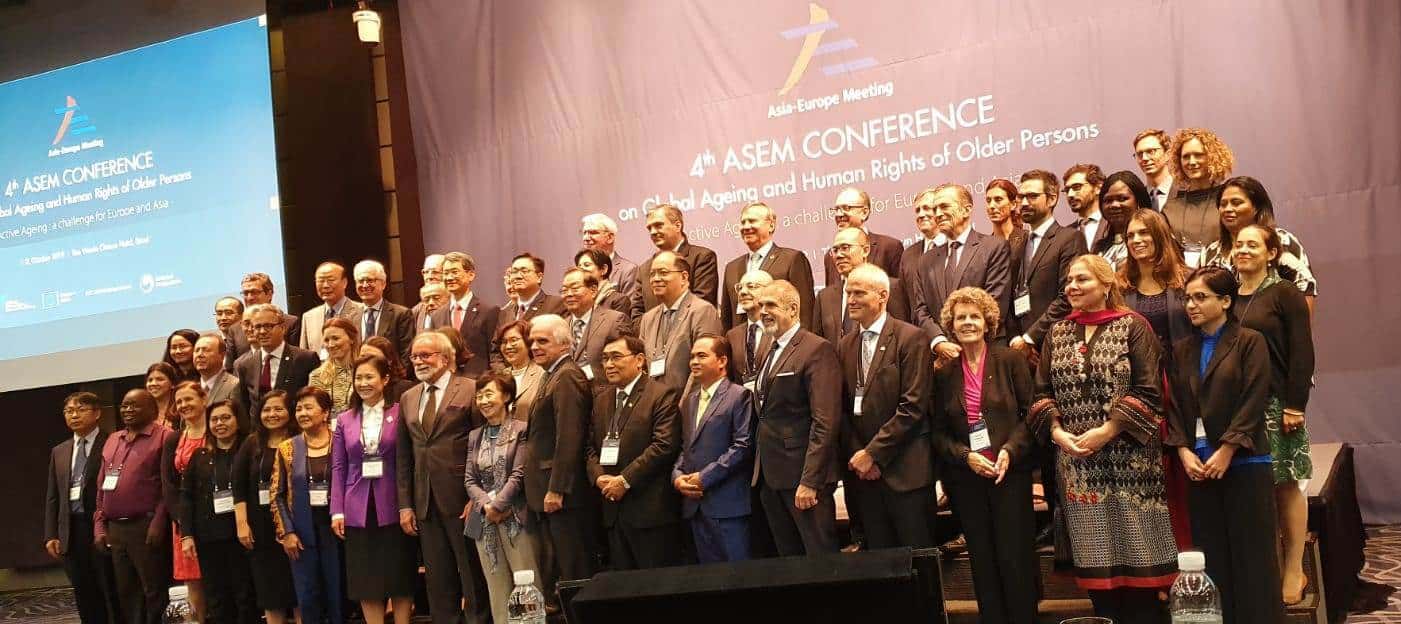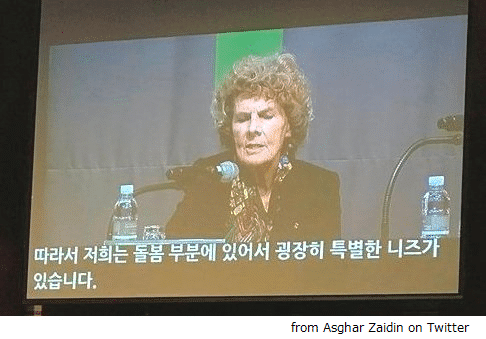
Joining forces to mark the International Day of Older Persons and the Korean Day of Older Persons, the European Union and the National Human Rights Commission of Korea co-hosted on 1-2 October in Seoul (Korea) the 4th ASEM Conference on Global Ageing and Human Rights of Older Persons. For two days 250 participants from governments, NGOs, international organizations and academia reflected on how to address active ageing and older persons’ right to non-discrimination as a common challenge for Europe and Asia.

“When we talk about intergenerational solidarity, we have to widen our perspective beyond working life. Solidarity also concerns education , social protection , equality, care and digitalization,” said Dr. Mollenkopt.
“Both Young and older generations are facing similar problems – ageist stereotypes, difficulties to find affordable housing etc. – and share similar values – sustainable development, equality, etc. Poverty makes life difficult in young and old age. Growing up in poverty significantly reduces educational opportunities, which increases the risk of poverty in old age.”
Dr. Mollenkopf further insisted on the critical need for opportunities in life to be guaranteed to all people, regardless of their age, origin or place of residence.
How to do so?
- Combat ageism, challenge stereotypes of older people
- Abolish all age limits. The number of years of life says very little about abilities and skills.
- Create inclusive labour markets. Equal opportunities must be guaranteed for all, girls and boys, men and women.
- Education is essential. A changing world requires lifelong learning. Create intergenerational learning opportunities.
- Provide adequate social protection for young and old to ensure support. E.g. make LTC affordable and fair for all generations.
- Combat digital exclusion. All generations, young and old, rich and poor, must have the opportunity to profit from technological advances – but also have the right to live an autonomous life without digital and autonomous systems.
- Adapt our communities to make them more inclusive. For ex. by improving access to outdoor spaces so that generations can meet; strengthen support networks within neighbourhoods.
- Respect and appreciation are the basis for peaceful coexistence.
Access Dr Heidrun Mollenkopf’s full presentation here (pdf)






